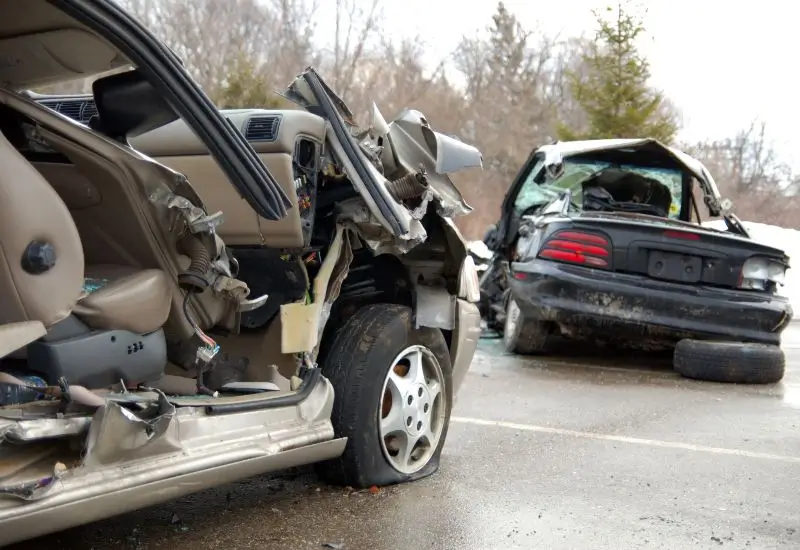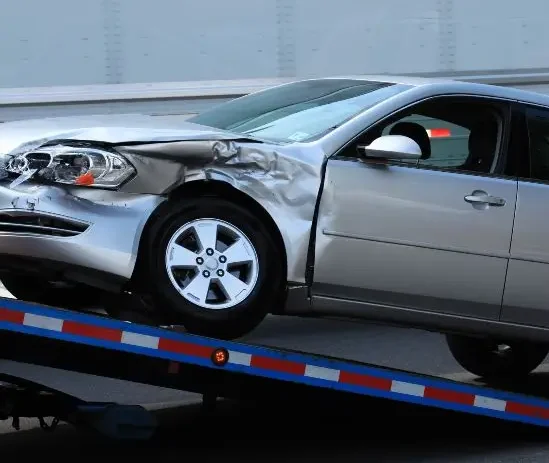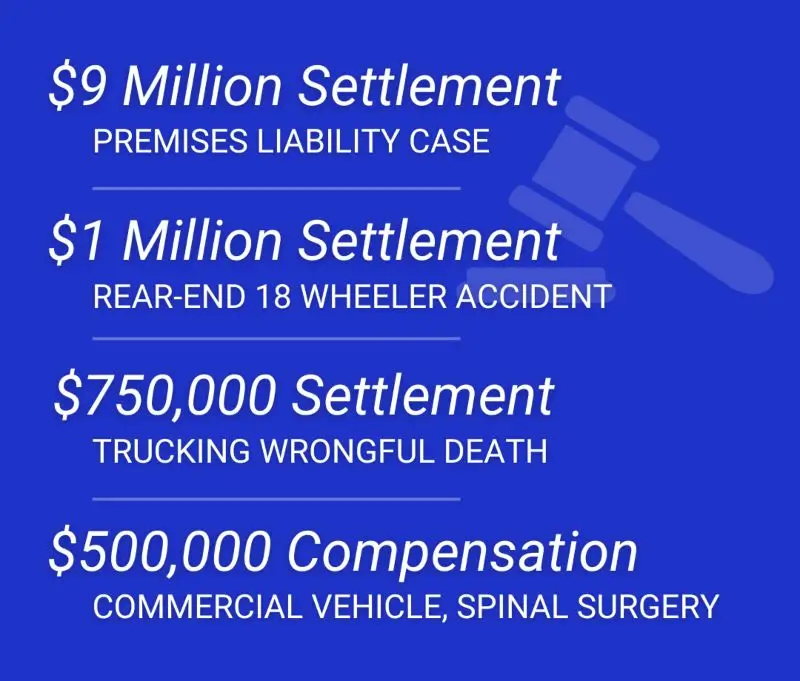What Every Texan Needs to Know About the Texas Total Loss Statute
In the best of times, no one wants to deal with an insurance company. However, in the days following a car accident, working with insurance is necessary. In addition to understanding insurance, Texans should have a good grasp on our state’s Total Loss Statute. This statute determines how your vehicle is classified and what compensation you can expect if your car is deemed a total loss after an accident. The traffic accident lawyers at Nava Law Group, P.C. can guide you through the intricacies of the Texas Total Loss Statute, as well as other relevant traffic laws. Here’s what every Texan needs to know about the Total Loss Statute.

The Basics of Total Loss
The Texas Total Loss Statute outlines how insurance companies determine if a vehicle is a total loss after an accident. When an insurance company declares your vehicle a “total loss,” it means the cost to repair the car is more than its actual cash value (ACV). In Texas, insurers use the Total Loss Formula (TLF) to determine this. If the repair costs plus the salvage value of the car exceed its ACV, it’s considered a total loss. Learn more about ACV and TLF:
Determining Actual Cash Value (ACV)
The ACV is pivotal in determining whether your car is a total loss. ACV is essentially the market value of your vehicle before the accident occurred. Insurers consider factors like your car’s age, make, model, condition, and mileage to calculate the ACV. We recommend always having an idea of your car’s current value before an accident ever occurs.
Calculating Total Loss
Texas follows the TLF to assess whether a vehicle is a total loss. The formula looks like this:
(Cost of Repair)+(Salvage Value)>(Actual Cash Value)
If the combined repair cost and salvage value meet or exceed the ACV, your car will be declared a total loss. This formula ensures that vehicles with extensive damage are appropriately valued for safety and economic reasons.
What to Do If Your Car Is Totaled
Even when you understand the basics of the Texas Total Loss Statute, navigating the aftermath of a car accident isn’t easy. If your vehicle is declared a total loss, the situation can be especially overwhelming. Thankfully, Nava Law Group, P.C. can help. Here’s a step-by-step guide to help you manage the fallout after a car accident:
- Document the Scene—If it’s safe to do so, take photos of the accident scene, your vehicle, and any other involved vehicles. This documentation can strengthen your claim for compensation.
- Report the Accident—Notify the proper authorities as soon as you are able. Assuming you’ve already spoken to law enforcement, you can then contact your insurance company about the accident. Provide all necessary details and cooperate with the adjuster assigned to your claim.
- Review the Salvage Value—The salvage value is what your car is worth in its damaged state. It’s calculated based on potential recovery from parts or scrap. Your insurer will let you know how much your vehicle is now worth and how much money you can expect to collect.
- Negotiate With Your Insurer—Present your insurer with all evidence, including repair receipts, photos, and records of upgrades. These items can help you argue a higher ACV. If your insurer gives you an unfair estimate, don’t hesitate to contact our team for help.
- Decide on the Vehicle’s Future—Now you have two options. You can accept payment from your insurance company and effectively sell them your totaled car. Alternatively, you can choose to keep the car and receive a salvage title. Obtaining a rebuilt title will require a new inspection.
- File a Claim for Total Loss—If you’re ready to declare your vehicle a total loss, work with the insurance adjuster to schedule a vehicle inspection and claim the loss.
- Receive Payout—After the inspection, the adjuster will determine the actual cash value of your vehicle. Then, you should receive a payout equal to the ACV minus your deductible.
Handling Disputes With Insurers
Disagreements with insurers about a total loss decision are not uncommon. If you find yourself in this situation, consider hiring an independent appraiser for a second opinion. Legal advice may also be beneficial if the dispute escalates. Our traffic accident lawyers are no strangers to these kinds of issues, and we can help you protect your rights in these cases.
Alternatives to Accepting a Total Loss
If your insurance company wants to declare your vehicle a total loss, remember you still have options! Before accepting your insurer’s settlement, you may want to explore these alternatives:
Negotiate for a Higher Settlement
If you believe your vehicle’s ACV or the adjustment is undervalued, present additional evidence to negotiate a better settlement. This might include recent maintenance records, receipts for enhancements, or comparable local vehicle prices.
Opt for a Partial Buyback
Many insurers offer the option to buy back a totaled vehicle at a reduced salvage value. This option enables you to retain ownership of the car, which you can then repair yourself or sell for parts. Though this choice often leads to a salvage title, it allows some autonomy as you navigate the aftermath of a car accident.
Selling Your Totaled Vehicle
If you choose not to repair your totaled vehicle, selling it may allow you to recover some value. Here are steps to consider when selling a totaled vehicle:
- Determine the Salvage Title Requirements—Salvage titles are required in Texas, and you’ll need to obtain one before proceeding with a sale. The salvage title legally designates the car as a totaled vehicle and ensures transparency during the selling process.
- Explore Multiple Selling Options—One quick way to sell a totaled vehicle is to contact local junkyards or scrap metal dealers. They typically pay cash based on the car’s weight and metal value. You might also consider listing your totaled vehicle online for parts or selling to buyers who specialize in salvage vehicles. No matter how you decide to sell, always provide full disclosure about the condition of your vehicle.
- Obtain Repair Financing—If you feel attached to your vehicle and repair costs are close to the total loss valuation, consider financing the repairs yourself. Consult with mechanics about payment plans or financing options, which may enable you to restore the vehicle without fully accepting a total loss claim.
Tips for Being Prepared for a Possible Total Loss
Once you understand the Texas Total Loss Statute, you can adequately prepare for a car accident. Our auto accident attorneys can answer your questions along the way and ensure you know what to do in the worst-case scenario. Here are our tips for preparing for a possible total loss well before a car accident:
- Know Your Coverage—Regularly review your insurance policy to make sure you understand what’s covered in the event of a total loss. Confirm you have comprehensive collision coverage if your vehicle’s value warrants it.
- Consider Gap Insurance—If you’re financing or leasing your car, gap insurance is essential. It covers the difference between your remaining loan balance and your vehicle’s actual cash value if it’s totaled.
- Maintain Vehicle Records—Keep detailed records of your vehicle’s maintenance, upgrades, and any customizations. This documentation can support a higher ACV calculation.
- Assess Your Vehicle’s Value—Periodically check the market value of your vehicle to understand its worth. Knowing your car’s current value can help you gauge whether offers are fair if they become a total loss.
- Choose a Reputable Insurer—Review your car insurance and be sure you’re working with a company known for fair assessments and settlements. Select a provider with a strong reputation for handling total loss claims.
- Document Accidents Thoroughly—In the event of an accident, take photos and gather contact information from witnesses. Detailed documentation can be invaluable when filing a claim.
- Understand the Impact of Total Loss—A total loss claim can affect your future insurance premiums. Insurers may view you as a higher risk, leading to increased premiums. However, this depends on various factors, including the circumstances of the accident and your driving history.

How an Attorney Can Help
Navigating the complexities of the Texas Total Loss Statute is challenging without professional guidance. An attorney specializing in motor vehicle accidents can provide invaluable assistance in several key ways. First, they can help you interpret the statute’s requirements, ensuring you understand its impact on your claim and financial recovery. At Nava Law Group, P.C., an experienced lawyer will assess your case to determine whether your vehicle meets the criteria for a total loss.
Beyond that, legal expertise is crucial when it comes to negotiating with insurance companies. An experienced attorney can advocate on your behalf, challenging any lowball offers and presenting evidence to support a higher vehicle valuation. They can also advise you on whether to pursue additional actions if disputes arise, ensuring you make informed decisions that align with your best interests. By partnering with a knowledgeable attorney, you gain access to resources and support that can significantly improve the outcome of your total loss claim.
Specializing in All Kinds of Motor Vehicle Accidents
At our personal injury firm, we pride ourselves on our extensive expertise in dealing with all types of motor vehicle accidents. Whether you’ve been involved in a car, motorcycle, truck, or even a boating accident, our dedicated team is equipped to guide you through the complexities of your situation. We understand that each type of accident presents unique challenges, and we’re here to help you navigate even the toughest situations. Learn more about our practice areas:
On the Road
Our legal team has years of experience in a variety of traffic accidents. If you’ve been involved in one of the following, get in touch with us:
- Pedestrian Accidents—Pedestrian-involved car accidents usually mean severe injuries for the pedestrian. If you’ve been hurt in one of these incidents, be sure to fight for compensation for your medical bills, lost wages, and pain and suffering.
- Bicycle Accidents—Just like pedestrians, cyclists are at increased risk of injury on the road. Distracted driving and inattention often lead to serious bicycle accidents. You deserve to cycle in safety—let us advocate for your rights!
- Truck Accidents—Have you been in a collision involving a semi or large truck? Our team can help you navigate the intricacies of filing a case against a company.
- Bus Accidents—When we think of motor vehicle accidents, we don’t often picture buses being involved. However, public transportation accidents aren’t uncommon. Allow Nava Law Group, P.C. to help you gain compensation after one of these incidents.
- Motorcycle Accidents—Motorcycle accidents are all too common and often lead to grave injuries. If you or a loved one has been hurt in an accident like this, look to Nava Law Group, P.C. for legal support.
On the Water
Sailing the waters can be as dangerous as driving the roads, with boat accidents posing significant risks to personal safety and property. Whether caused by adverse weather, equipment failure, or human error, these incidents often result in severe consequences. Our team can help you deal with maritime laws and other aspects of boating accident claims. We’ll walk you through liability, insurance, and more.
Navigate Total Loss With Nava Law Group, P.C.
Understanding the complexities of the Texas Total Loss Statute is easier when you have an auto accident attorney on your side. The team at Nava Law Group, P.C. will empower you to make the best decision in your difficult situation. The more you know about car accidents and the Texas Total Loss Statute, the better prepared you’ll be to handle the aftermath. Get in touch with our team today for top-tier legal support.








